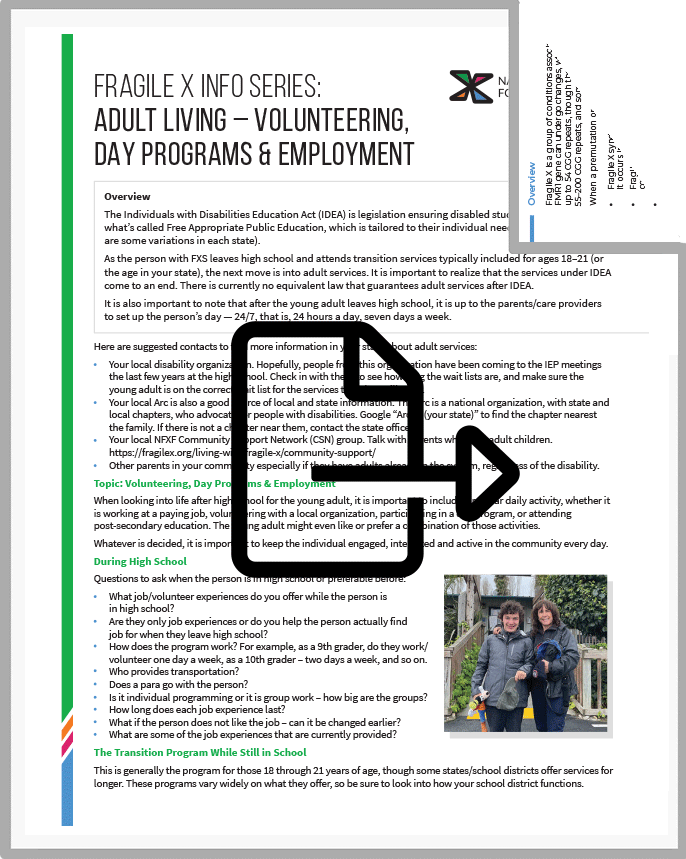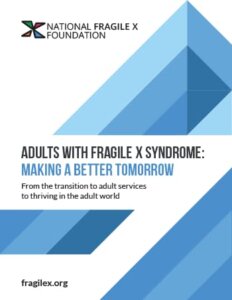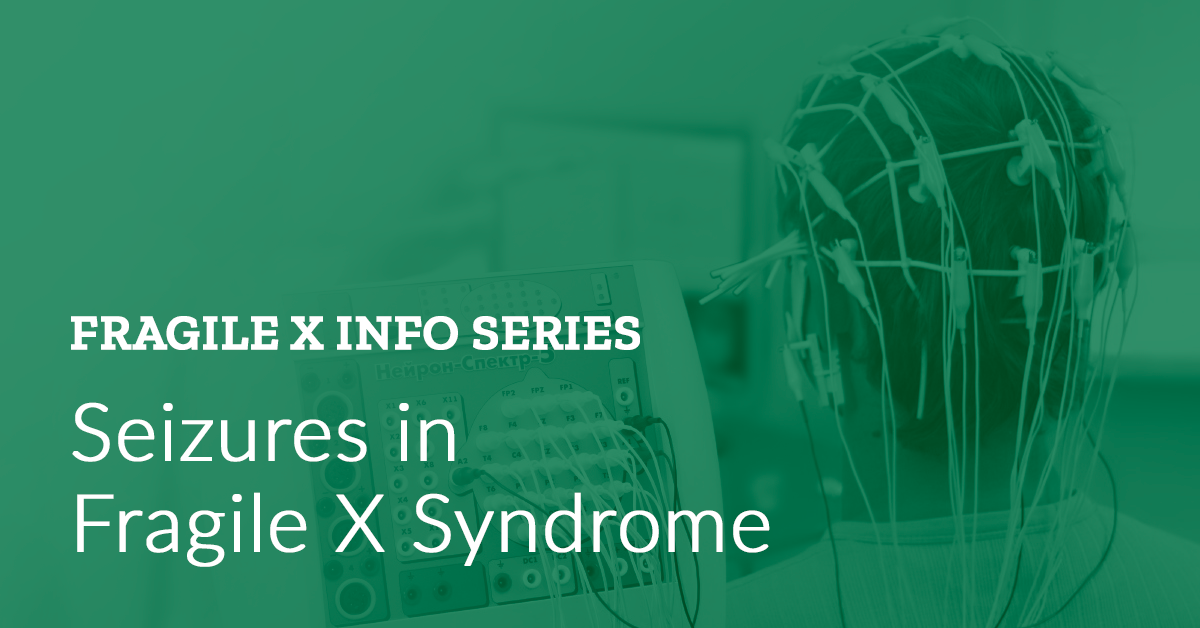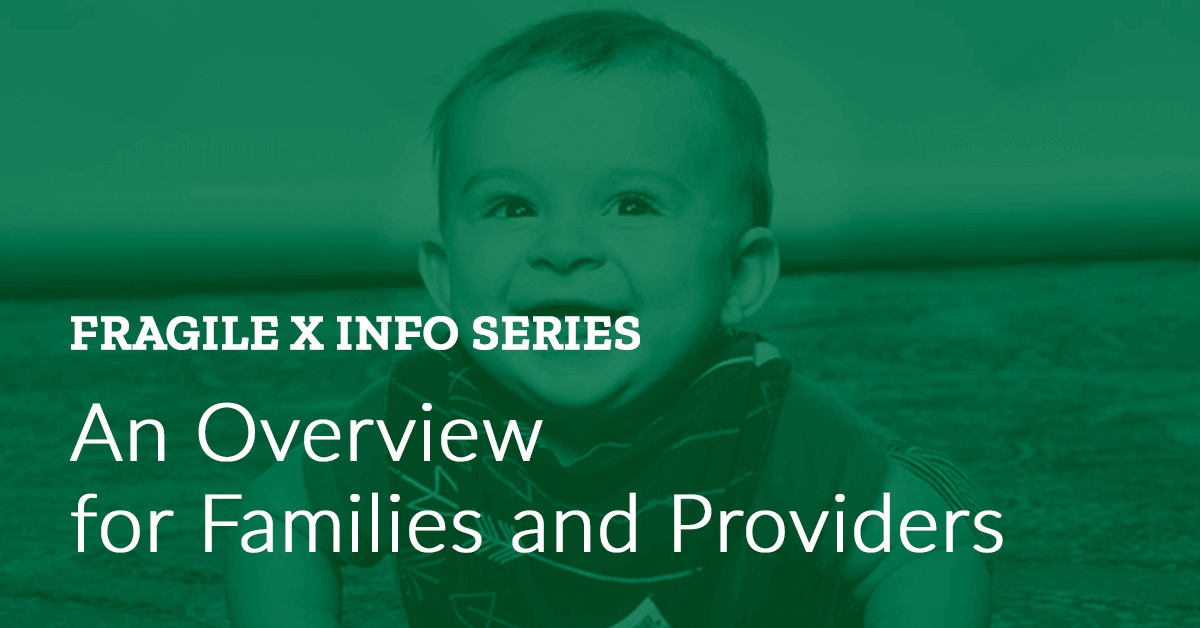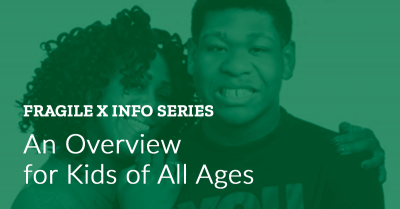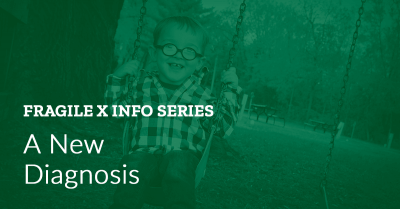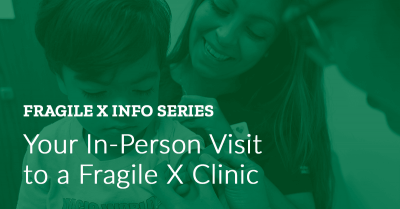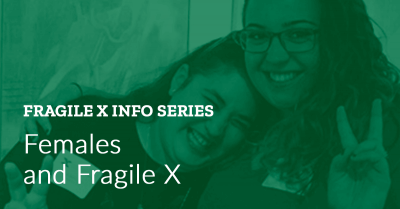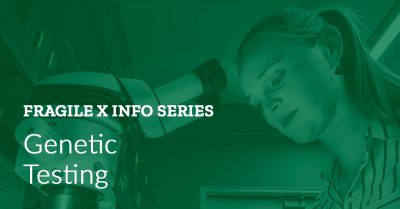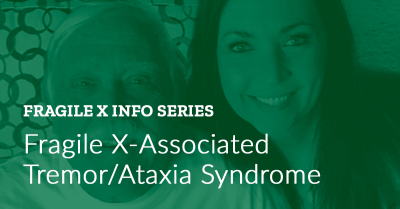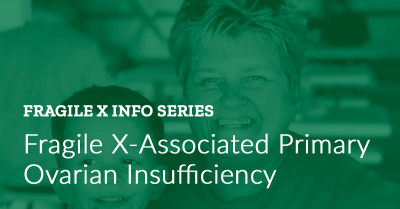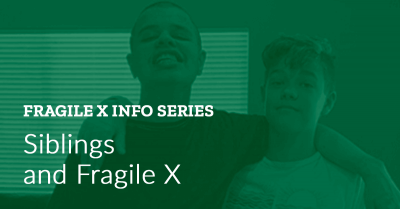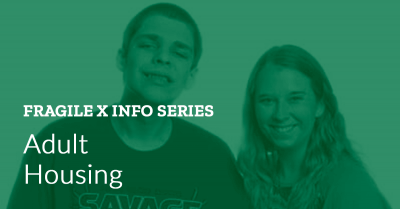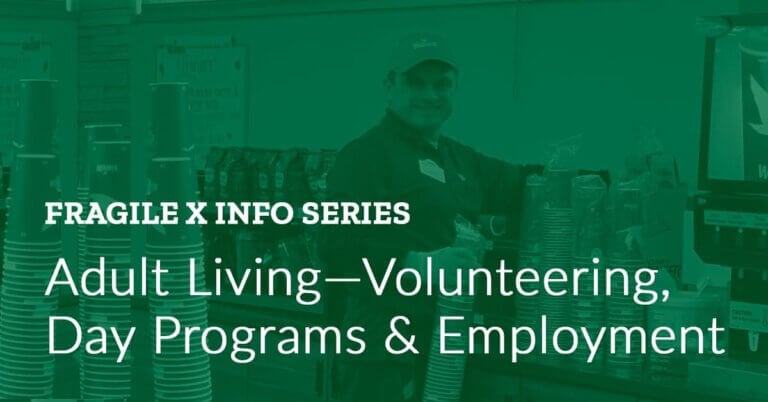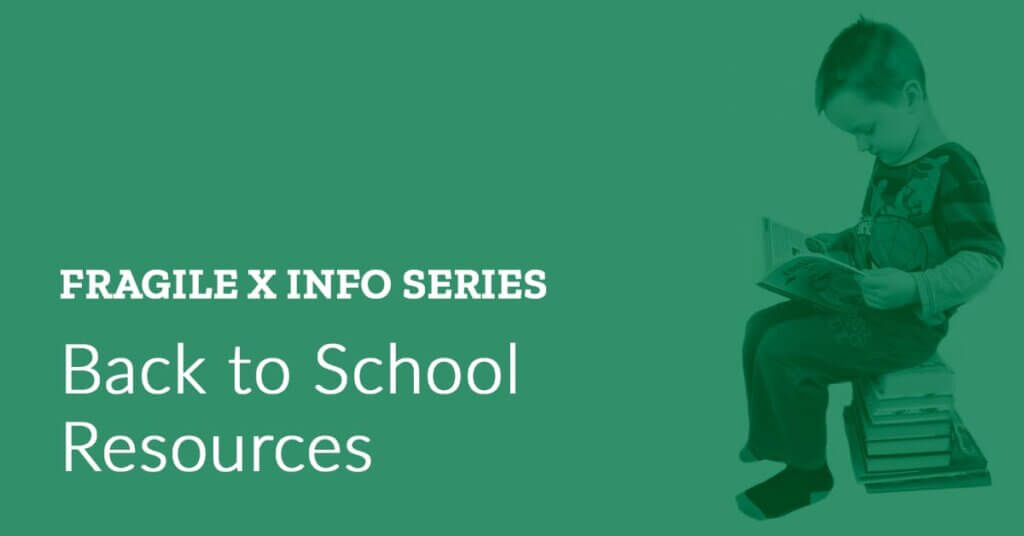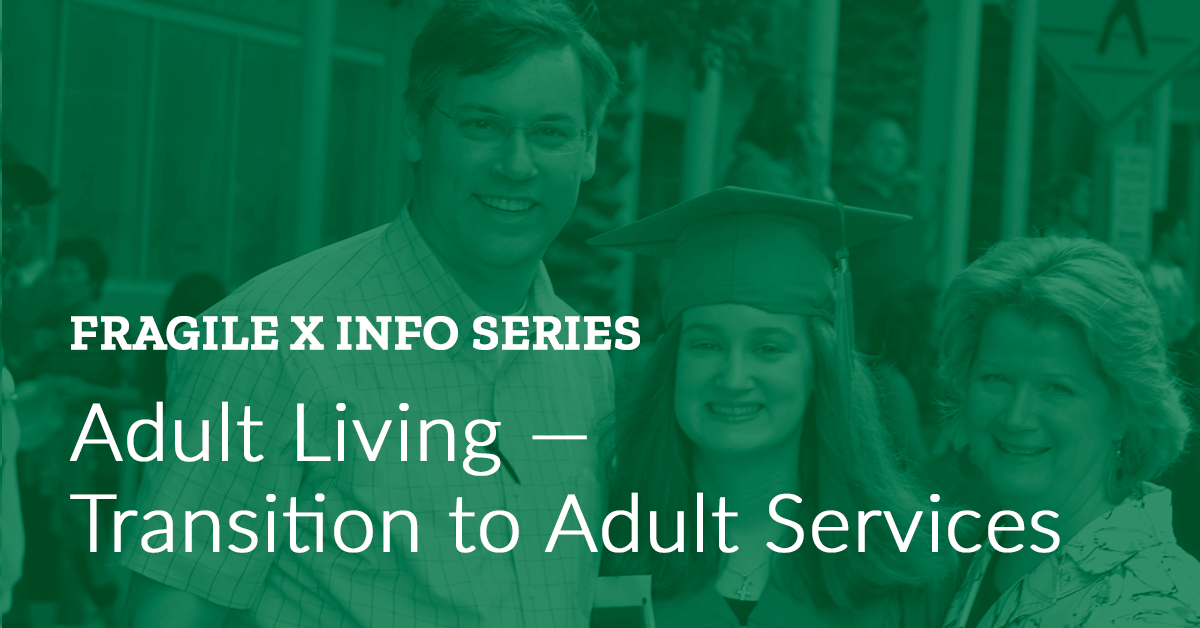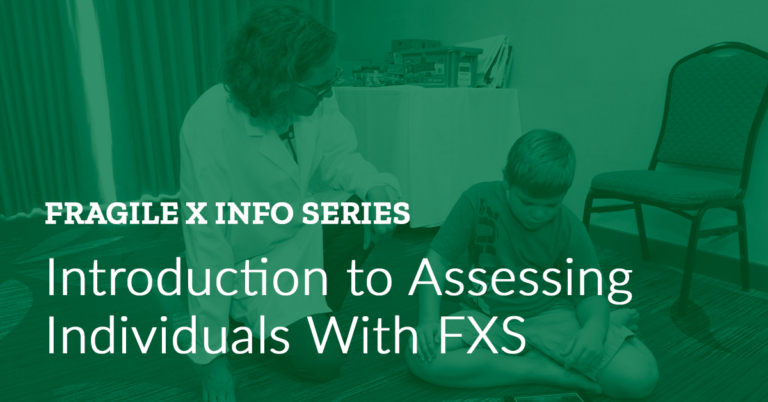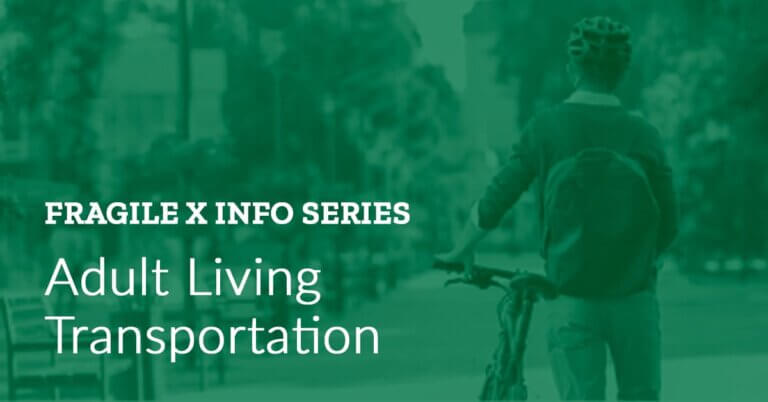Fragile X Info Series
When looking into life after high school for the young adult, it is important to include a regular daily activity, whether it’s working at a paying job, volunteering with a local organization, participating in a day program, or attending post-secondary education. The young adult might even like or prefer a combination of those activities. Whatever is decided, it’s important to keep the individual engaged, interested, and active in the community every day.
Overview of IDEA
The Individuals with Disabilities Education Act (IDEA) is legislation ensuring eligible, disabled students are provided with whatʼs called Free Appropriate Public Education, which is tailored to their individual needs through age 21 (there are some variations in each state).
As the person with FXS leaves high school and attends transition services typically included for ages 18–21 (or the age in your state), the next move is into adult services. It is important to realize that the services under IDEA come to an end. There is currently no equivalent law that guarantees adult services after IDEA.
It is also important to note that after your young adult leaves high school, it’s up to parents/care providers to set up their day — 24/7 that is, 24 hours a day, seven days a week.
Here are suggested contacts to find more information in your state about adult services:
YOUR LOCAL DISABILITY ORGANIZATION
Hopefully, people from this organization have been coming to the IEP meetings the last few years at the high school. Check in with them to see how long the wait lists are, and make sure your young adult is on the correct wait list for the services that they will need.
LOCATING STATE-SPECIFIC SERVICES
Find government and local disability programs through USA.gov, or search on your own for your location (try searching for: “[your state] disability programs”).
Also find your state’s plan and local centers for independent living.
YOUR LOCAL ARC
Your local Arc is also a good source of local and state information. The Arc is a national organization, with state and local chapters, who advocate for people with disabilities. Google “Arc of of [your state]” to find the chapter nearest the family. If there is not a chapter near them, contact the state office.
SEARCH LOCALLY
Seek out other parents in your community, regardless of the disability, especially if they have adults already in the system.
NFXF COMMUNITY SUPPORT NETWORK
Your local NFXF Community Support Network (CSN) group. CSN is our mission delivery arm and is comprised of volunteer-led chapters, community partners, and parent contacts. The dedicated parent volunteers who lead the CSN provide emotional and educational support to families and individuals living with Fragile X.
If you have questions about the CSN or are looking for information on a local group, you can also email csn@fragilex.org.
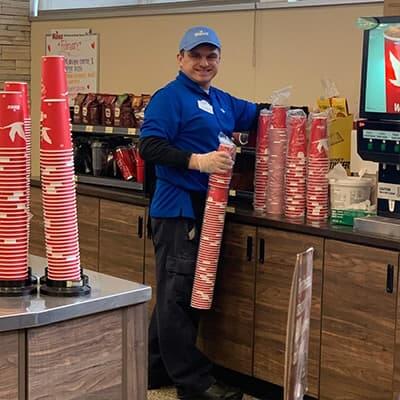
During High School
Once you’ve made contact with your local disability organization, here are some, questions to ask when the young adult is in high school, or preferably before:
- What job/volunteer experiences do you offer while the person is in high school?
- Are they only job experiences or do you help the person actually find a job when they leave high school?
- How does the program work? For example, as a 9th grader, do they work/volunteer one day a week, as a 10th grader — two days a week, and so on.
- Who provides transportation?
- Does a para go with the person?
- Is it individual programming or is it group work — how big are the groups?
- How long does each job experience last?
- What if the person does not like the job — can it be changed?
- What are some of the job experiences that are currently provided?
The Transition Program While Still in School
This is generally the program for those 18 through 21 years of age, though some states/school districts offer services for longer. These programs vary widely on what they offer, so be sure to look into how your school district functions.
When School Services End
Set a Daily Schedule
Regardless of what you’re able to set up when school services end, set a daily schedule for the person right away, even if it’s a general one. You can always add to it or revise it later. A visual schedule will help both of you — it sets expectations, and it gives the individual structure, routine, and knowledge of what will happen each day. As much as possible, be sure to include leaving the house every day, as many individuals can get too used to staying at home and not want to leave. Include the individual in setting the schedule.
Volunteering
Volunteer jobs can offer the type of work that is not found anywhere else. Working at the Humane Society? In a senior center? These can be very rewarding jobs. Volunteers are an important part of many organizations, and in many cases, they are invaluable! Companies/people who hire volunteers count on them just as in a paying job. Volunteering is a commitment, and it’s important for the individual to look at it that way.
Day Programs
To find the options in the area where the family lives, reach out to the local disability organization, the local Arc, or other parents who live in the area. It’s important that parents visit any programs they are considering.
Employment
Seek employment for the person with FXS if they are able to work part or full time. It’s not unusual for parents to find the job for their adult child, but there are also resources to help find the job — and a job coach — if needed.
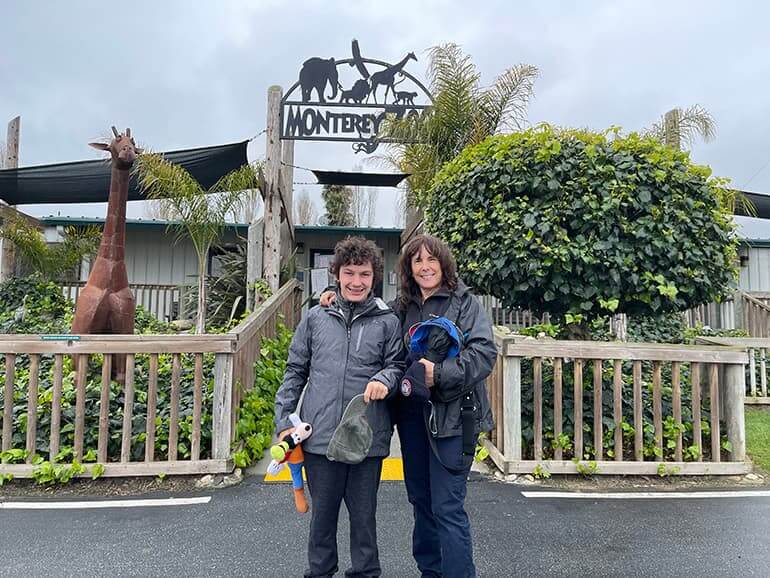
Above: Zach with his mother in front of the Monterey Zoo entrance. Learn how Zach found his dream job volunteering at the zoo where he helps both the zookeepers and the animals.
Finding a Job: Build on Strengths and Interests
Finding a job for your adolescent or young adult is similar to the process that everyone goes through to find a job. Look at the jobs the person had in high school, their overall strengths, and find out what they’re interested in doing. This will lead to the development of a list of “potential” jobs.
Basic Guidelines to Consider in Determining a Person’s Ideal Work Environment Include:
- Their personal talents and preferences, learning style, and tolerance levels for various stimuli such as noise level and social interaction.
- The job location as it impacts transportation needs and the level of supervision required are also important.
- The individual’s learning styles.
- Whether sensory processing an issue and how it might relate to the job.
- Considering each of the potential jobs and evaluate them in light of the individual’s skill set — including those skills they might still develop.
- The support the individual might need—both initially and in the long term.
Developing Appropriate Work Attributes
Areas to include: Dress, hygiene, punctuality, manners, speech attitude, behavior, personal/workspace, illness, and asking for help.
Adults with Fragile X Syndrome:
Making a Better Tomorrow
We have built the ultimate guide on transitioning into and continuing to care for adults with Fragile X syndrome. Our ebook includes chapters on:
Transition to Adult Services ♦ Transportation ♦ Housing ♦ Employment, Volunteering & Day Programs ♦ College & Post-Secondary Education ♦ Daily Living
LEARN MORE
Transition to Adult Services for Individuals with Fragile X Syndrome
Our recommendations on transitioning to adult services from the Fragile X Clinical & Research Consortium.
8 Tips on Transitioning Your Child to Adult Services
To provide crucial support to families and students prior to, during, and through the transition process, the NFXF partnered with the University of Denver’s Morgridge College of Education to bring you these tips.
How We Can Help
The NFXF is dedicated to serving the entire Fragile X community to live their best lives by providing the knowledge, resources, and tools, until, and even after more effective treatments and a cure are achieved. Learn more with Fragile X 101.
If you have questions please reach out to us at treatment@fragilex.org or call (800) 688-8765.


